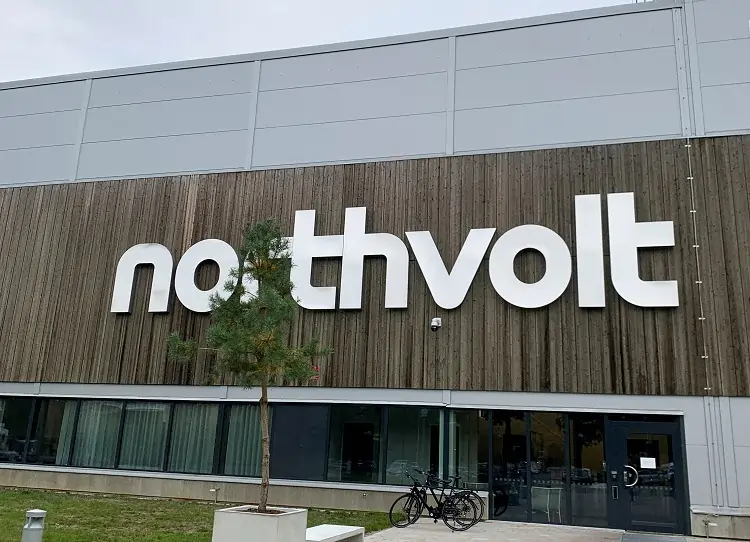
By Marie Mannes
STOCKHOLM (Reuters) – Northvolt plans to cut 1,600 jobs at its base in Sweden, or about a fifth of its global workforce, as Europe’s biggest hope in the electric vehicle battery market struggles with production problems, sluggish demand and competition from China.
The leader in efforts to build a European automotive battery industry said on Monday it would suspend plans for a large expansion of its Northvolt Ett factory in Skelleftea, northern Sweden.
In an effort to cut costs, Northvolt slimmed down its business earlier this month, departing from its original mission to be an all-in-one shop offering everything from material production and battery making to end-of-life recycling.
With Volkswagen among its owners, Northvolt has led a wave of European startups investing billions of dollars in battery production to serve the continent’s automakers as they switch from internal combustion engines to EVs.
But the Swedish company has struggled with order delays. Problems scaling up production led BMW to pull a $2 billion order in June.
Northvolt said on Monday it would focus on ramping up the first 16 gigawatt-hours (GWh) of annual battery cell production capacity at Northvolt Ett, while shelving a construction project that had aimed at increasing its capacity by another 30 GWh.
Currently, the company produces less than 1 GWh and originally planned for the factory to ultimately make batteries for over one million cars a year, at 60 GWh of capacity.
Growth in EV demand is also slower than some in the industry projected, and competition is stiff from China, which accounts for 85% of global battery cell production, International Energy Agency data shows.
“We are determined to overcome the challenges we face, and to emerge stronger and leaner,” Northvolt co-founder and CEO Peter Carlsson said in a statement. “We now need to focus all energy and investments into our core business.”
The company’s R&D hub, Northvolt labs, will slow all programmes and expansion, while maintaining the fundamental platforms, it said.
It did not mention the fate of planned gigafactories in Germany and Canada, which are at risk of being postponed.
EUROPEAN PROSPERITY
Northvolt’s “level of ambition and their level of realism at the moment is fairly good in that they’re not pushing blindly ahead when it’s not working,” said Evan Hartley, an analyst at Benchmark Mineral Intelligence.
Northvolt is still loss-making despite securing orders worth over $50 billion from customers including top investor Volkswagen, underscoring Europe’s struggle to compete with the dominance of Chinese battery makers such as CATL and BYD.
The Swedish firm has organised $15 billion in equity and debt financing from a raft of players including Goldman Sachs – its second-biggest investor – and BlackRock, according to filings, and has been trying to raise more to fund its ramp-up.
It lost $1.2 billion last year, up from a $285 million loss the year before. Its cash on hand at the end of 2023 was $2.13 billion.
Former European Central Bank head Mario Draghi warned this month that Europe needed a far more coordinated industrial policy and massive investment to keep pace economically with the United States and China.
But many European governments are financially stretched following the COVID pandemic and grappling with anaemic growth.
Sweden’s Prime Minister Ulf Kristersson said on Sept. 13 that while he wanted companies engaged in green technologies to thrive, the government would not take a stake in Northvolt. The government has also said it will not lend to the company.
Carlsson said all interested parties should work with the company.
“I believe it’s important going forward that all the stakeholders we work with now – customers, shareholders, lenders, and also national stakeholders – are contributing to a good long-term solution, because this is about European prosperity and competitiveness,” he told Swedish radio.
(Additional reporting by Anna Ringstrom and Terje Solsvik; Editing by Mark Potter and Catherine Evans)


